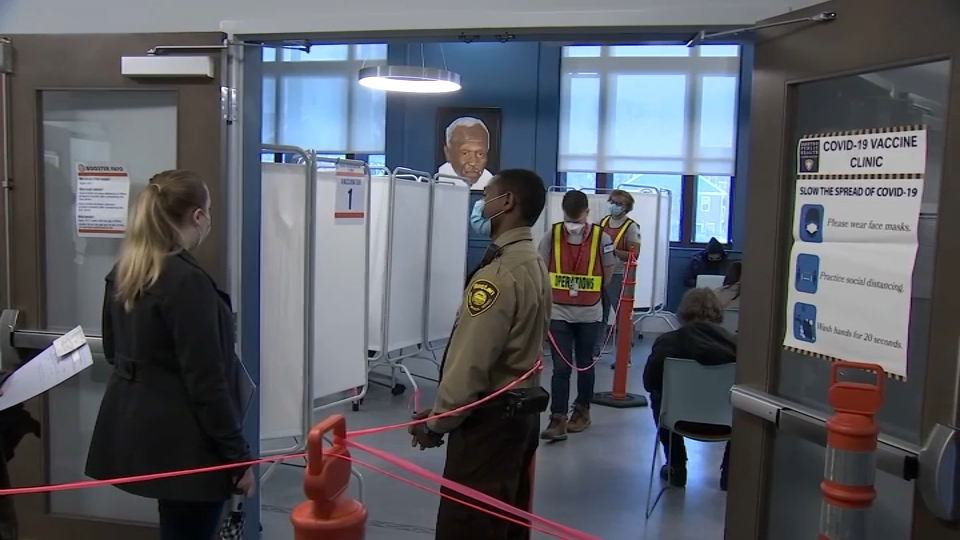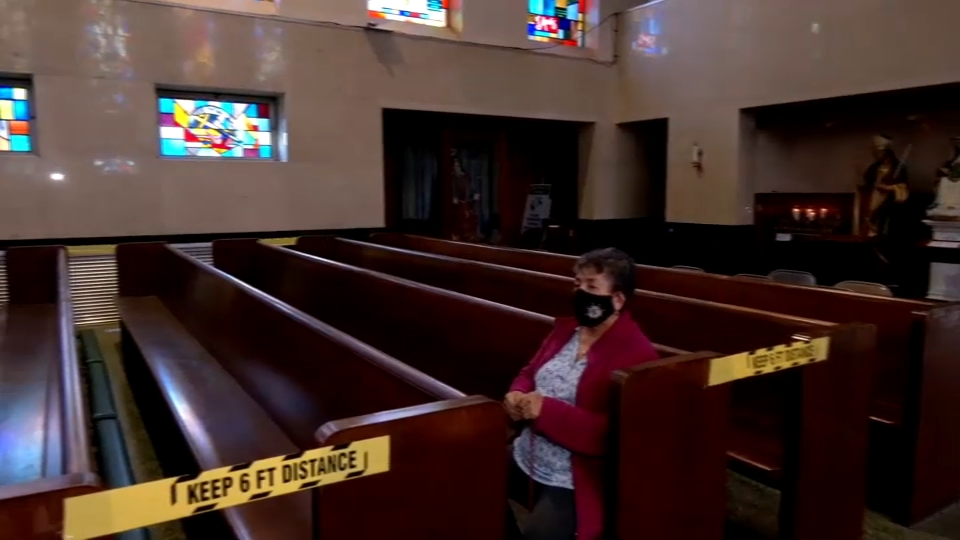Boston Mayor Michelle Wu on Monday outlined her plan for winter weather, which includes "transitional spaces" for people experiencing homelessness during the city's ongoing public health crisis.
At a news conference in the Boston Public Works yard Monday, Wu detailed 18 new pieces of equipment added to the city's arsenal as well as resources available for people experiencing homelessness and the elderly.
WATCH ANYTIME FOR FREE
Stream NBC10 Boston news for free, 24/7, wherever you are. |
"Winter is coming," Wu said. "And as it officially starts next Tuesday, Dec. 21, the Department of Public Works and many of our other city departments have been undergoing preparations for a long time to ensure that we are ready for the snow."
Sign up for our Breaking newsletter to get the most urgent news stories in your inbox.
Get updates on what's happening in Boston to your inbox. Sign up for our News Headlines newsletter.
To help deal with snow and ice this winter, the Boston Public Works Department has 164 pieces of in-house snow clearing equipment with the ability to put more than 100 pieces on the roads during larger storms, Wu said.
"The salt pile that we are standing in front of is just some of the 40,000 tons of salt that Public Works has on hand to treat neighborhood streets and keep them safe and drivable and accessible to all," she said.
The department also acquired five small dump trucks with plows and salt spreaders, nine pickup trucks with plows and salt spreaders and four large dump trucks with plows and spreaders, totaling 18 pieces of new equipment.
Despite a statewide shortage of snow plow drivers, the Department of Public Works remains fully staffed, Superintendent Michael Brohel said. He credited the staffing levels in part to the city's generous salaries.
"We tend to pay more than the smaller towns and cities across the state," Brohel said. "So far we’ve gotten confirmation from all nine contractors that they’ve got the drivers to man their trucks.”
Meanwhile, Boston continues to struggle with a public health crisis revolved around homelessness and addiction. Last week, Wu said she had "no specific timeline," for her plan to relocate people living in tents that line Massachusetts Avenue and Melnea Cass Boulevard, an area known as Mass. and Cass.
On Monday, Wu said that "transitional spaces" will be brought online in the days and weeks ahead to ensure people who are experiencing homelessness have access to shelter.
"The first step in the transitional housing pipeline means that we will be putting more resources and looking to ensure people are getting the support that they need," Wu said, "and really change the dynamic here in the area near Mass. Avenue and Melnea Cass Boulevard with our opiate crisis, mental health and homelessness city-wide."
The Pine Street Inn, a shelter that conducts nightly street outreach in Boston, will deploy extra vans to encourage people to seek shelter on particularly cold and stormy nights.
"If you see anyone -- a homeless individual that looks vulnerable, cold -- call 911. Do not hesitate. They'll be dispatched make sure that that individual is safe," Monday Boston's chief of housing, Sheila Dillon.
Over 1,000 beds are available in emergency shelters through a collaboration of the Boston Public Health Commission, St. Francis House, the Boston Rescue Mission, Pine Street, Bridge Over Troubled Waters and the New England Center for Homeless Veterans. City agencies and nonprofits said they have also been working to house as many homeless individuals and families as possible before the winter months.
"For residents who are experiencing homelessness, cold weather presents a special danger," Wu said. "Every year we work with our shelters and street outreach teams to make sure we have safe shelter for everyone in need."
Seniors and elderly residents are encouraged to call 311 to be connected with resources including transportation, food access, health insurance, fuel assistance, utility discounts or help with home repairs.
"Seniors, especially senior homeowners -- call 311 If you have any housing emergency, especially a heat emergency," Dillon said. "Do not hesitate."
Wu reminded residents Monday to move their cars when snow emergencies are declared and to clear sidewalks in front of private properties. The mayor encouraged people to sign up for Boston's alert system as well in order to receive updates via text, email or phone calls in several different languages.
Boston residents will receive a winter weather guide in the mail this week, which is also available on the city's website and is translated into 10 different languages. The website will be updated as each storm comes up with information relevant to that particular moment, Wu said.
Wu said Monday that, after some discussion with state leaders, Boston Public Schools are being encouraged to take snow days rather than remote-learning days with inclement weather.
Heading into the holiday season, as the state experiences another surge of COVID-19 cases and the new omicron variant, Wu encouraged people to get tested, vaccinated and boosted.
"We're now entering year three of the COVID-19 public health emergency and new variants continue to emerge," Wu said. "Winter calls for a lot of indoor activities and we are in the midst of holiday surge in COVID-19 positivity. As always, I and the Boston Public Health Commission and our entire city encourage Bostonians to get tested, vaccinated and boosted."
Politicians and medical experts in Massachusetts have been urging people to get vaccinated against COVID-19 amid growing concern over the omicron variant. In an episode of NBC10 Boston's weekly "COVID Q&A" series, local experts said they weren't sure if the omicron variant can evade the existing COVID-19 vaccines or natural antibodies.
Shortly afterward, the Pfizer vaccine was reported to be less effective against the omicron variant. A new study out of Israel confrimed that, six months after the initial Pfizer vaccine series, people had “almost no neutralizing ability” against the omicron variant. But, with a booster shot, the Pfizer vaccine provides significant protection against the variant.



